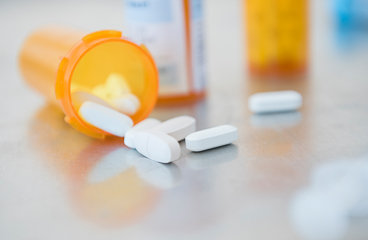
Overview
Almost any medicine can cause harm if you take too much of it. You have had treatment to help your body get rid of an overdose of a medicine. This may have been an over-the-counter medicine. Or it might be one that a doctor prescribed. It may even have been a vitamin or a supplement.
During treatment, the doctor may have given you fluids and medicine. You also may have had lab tests. Then the doctor made sure that you were well enough to go home.
The doctor has checked you carefully, but problems can develop later. If you notice any problems or new symptoms, get medical treatment right away.
Follow-up care is a key part of your treatment and safety. Be sure to make and go to all appointments, and call your doctor if you are having problems. It's also a good idea to know your test results and keep a list of the medicines you take.
How can you care for yourself at home?
Home care
- Talk with your doctor about what you should eat or drink.
- If you normally take medicines, ask your doctor when you can start taking them again.
- Read the information that comes with any medicine. If you have questions, ask your doctor or pharmacist.
Prevention
- Be safe with medicines. Take your medicines exactly as prescribed or as the label directs. Call your doctor if you think you are having a problem with your medicine.
- Keep your medicines in the containers they came in. Keep them with the original labels.
- Find out what to do if you miss a dose of your medicine.
When should you call for help?
Poison control centers, hospitals, or your doctor can give immediate advice in the case of a poisoning. The United States National Poison Control Hotline phone number is 1-800-222-1222. Have the poison container with you so you can give complete information to the poison control center. This includes what the poison or substance is, when it was taken, and how much was taken. Do not try to make the person vomit.
Call 911 anytime you think you may need emergency care. For example, call if you or someone else:
- Has used or currently uses alcohol or drugs and is very confused or can't stay awake.
- Has passed out (lost consciousness).
- Has severe trouble breathing.
- Is having a seizure.
Call your doctor now or seek immediate medical care if:
- You are vomiting.
- You have a new or worse headache.
- You are dizzy or lightheaded or feel like you may faint.
Watch closely for changes in your health, and be sure to contact your doctor if:
- You do not get better as expected.
Current as of: July 31, 2024
Author: Ignite Healthwise, LLC Staff
Clinical Review Board
All Ignite Healthwise, LLC education is reviewed by a team that includes physicians, nurses, advanced practitioners, registered dieticians, and other healthcare professionals.

